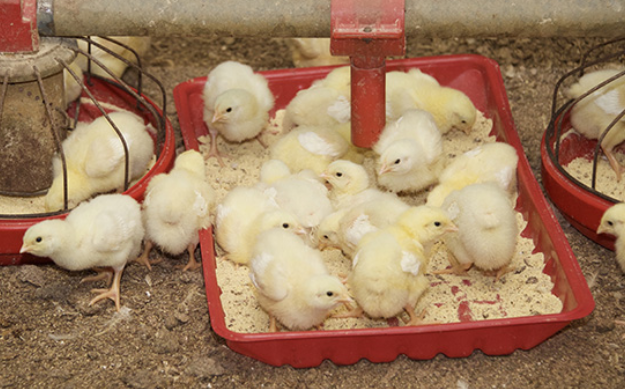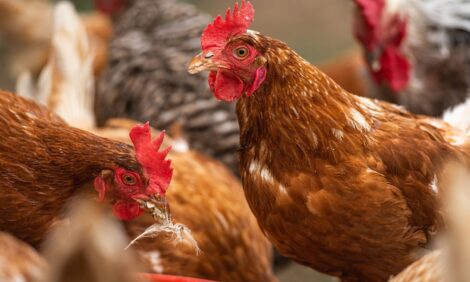



More amino acids, feed aid broiler chicks vaccinated for coccidiosis
Feeding broilers a diet high in amino acids, along with more feed, can minimise the adverse effects on performance that sometimes occur after coccidiosis vaccination, indicate the results of a study presented at the 2018 International Poultry Scientific Forum. [1]Although coccidiosis vaccine administered at hatch has the positive effect of initiating immunity against the Eimeria organisms that cause coccidiosis, it can also lead to depressed bodyweight gain (BWG) and poor feed conversion (FCR), said Sara Cloft, a graduate student at Auburn University.
In a study, Cloft and colleagues assigned 1,600 male broilers to one of eight treatments with varying amounts of digestible amino acid (AA) density. The “moderate” AA treatment was 1.15% digestible lysine, and the “high” AA treatment was 1.25% digestible lysine. The amount of starter feed in each group was 0.45, 0.73 or 1.0 kg/bird.
Diets were formulated to similar digestible ratios of threonine (0.67%), total sulfur amino acids (0.78%), valine (0.70%), isoleucine (0.67%), arginine (1.05%) and tryptophan (0.17%) to digestible lysine, she said.
At 21, 28 and 41 days of age, broilers fed the high-AA starter diet had higher BWG, lower FCR, and heavier carcass weight and total breast weight than birds fed the moderate-AA diet, Cloft said.
A 1.1-gram increase in digestible lysine during the starter period resulted in a 0.64% increase in total breast yield compared to the moderate-AA diet.
Broilers fed the high-AA diet had fewer intestinal lesions than those fed the moderate-AA diet, and birds fed more starter feed had heavier carcass weight compared to birds fed less, Cloft reported.
References:
1 Cloft S, et al. Effects of dietary amino acid density and feed allocation during the starter period on 41 d growth performance and processing characteristics of broiler chickens given coccidiosis vaccination at hatch. 2018 International Poultry Scientific Forum.











